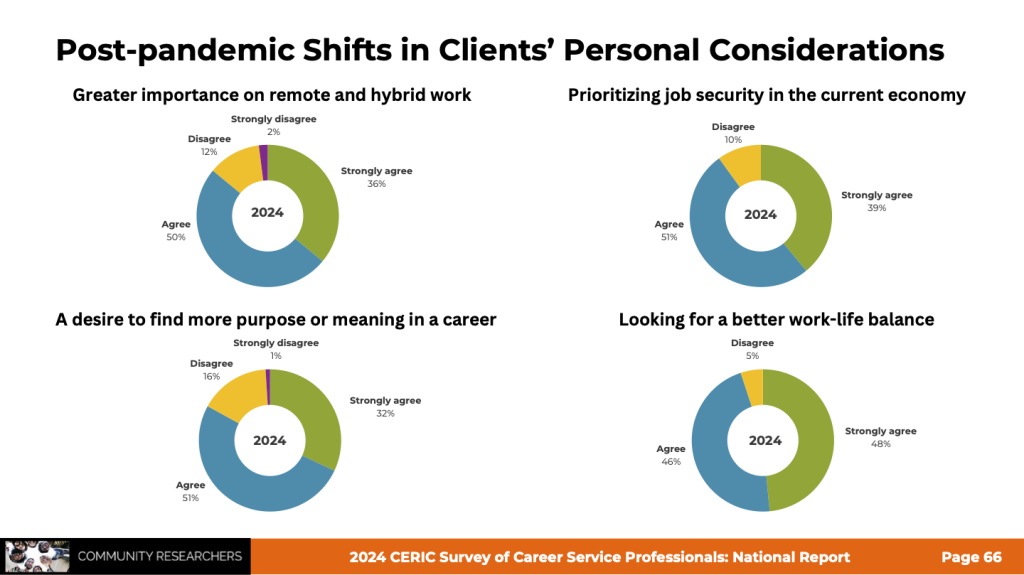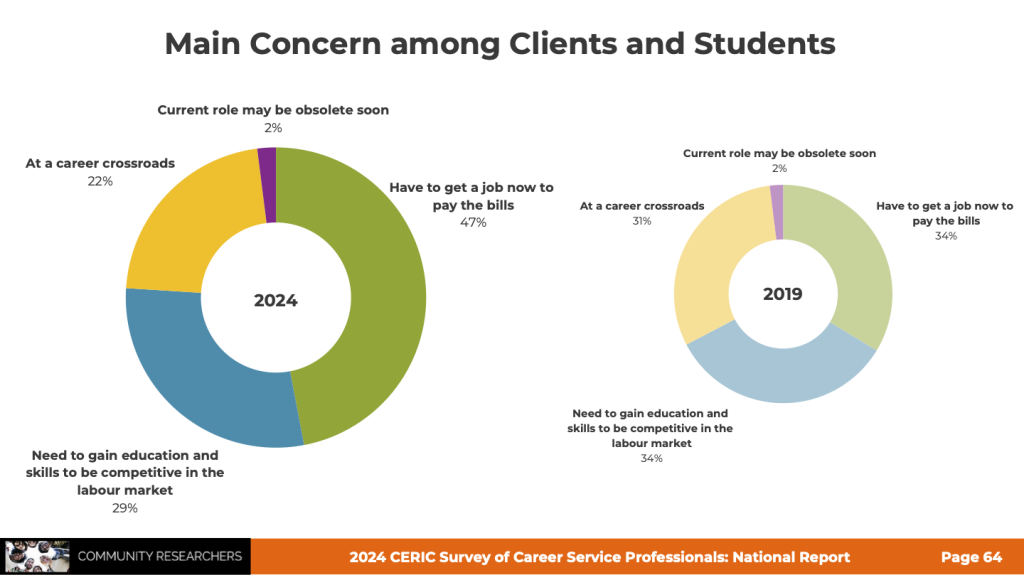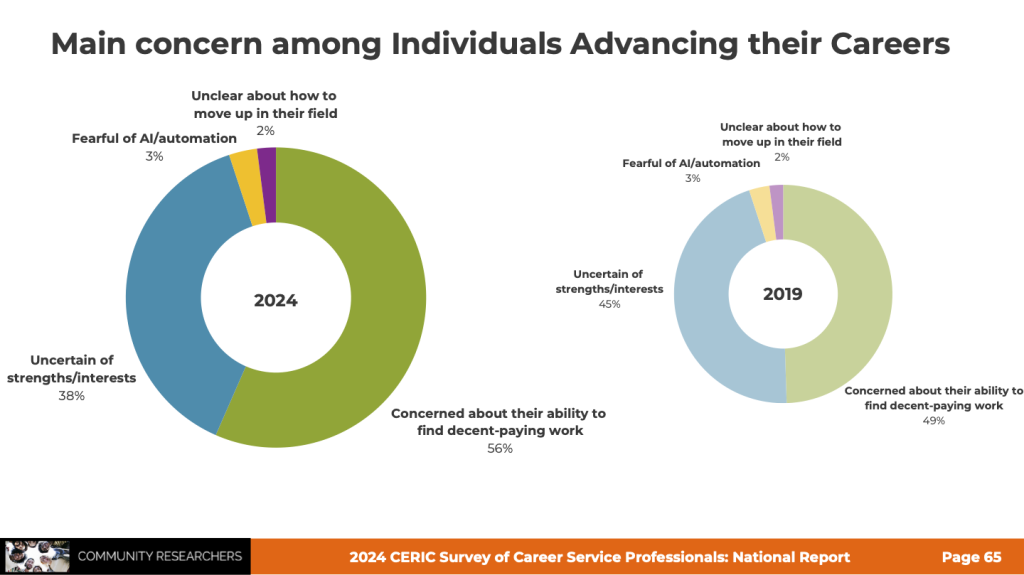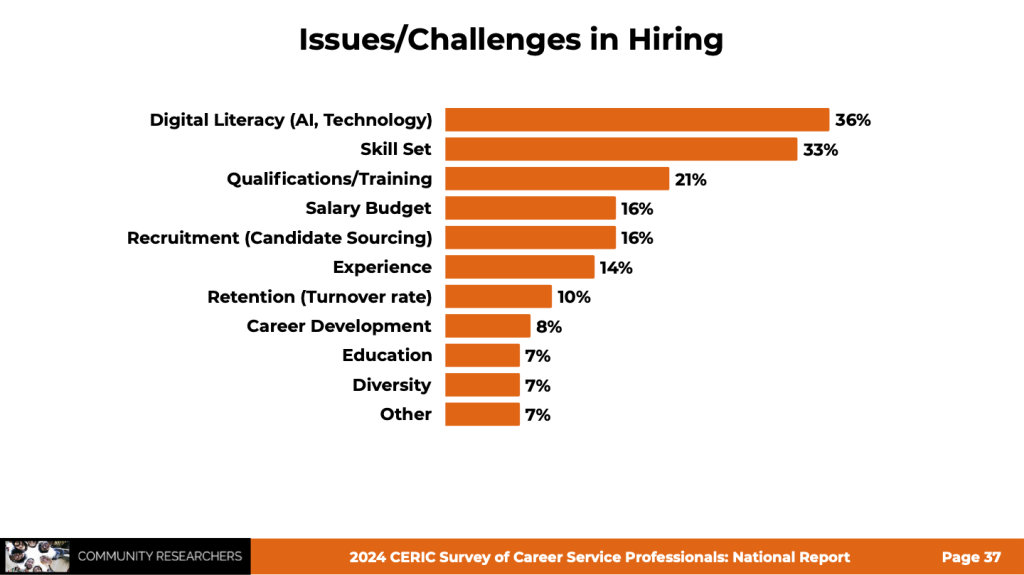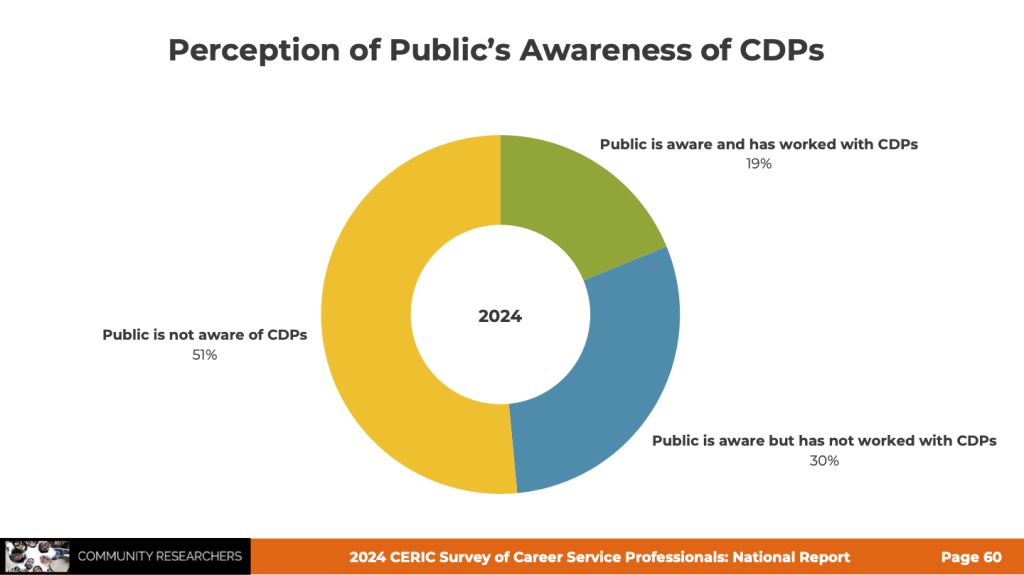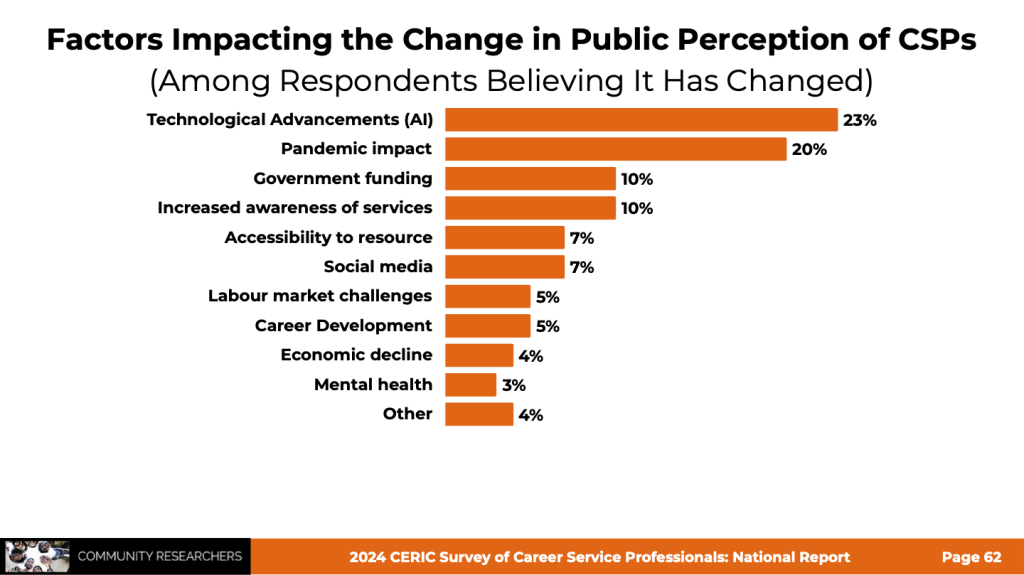|
Getting your Trinity Audio player ready...
|
Career professionals are experts at collecting and analyzing labour market information – evaluating sectoral trends, emerging industries and in-demand skills to support client success. But how often do we turn that investigative eye on ourselves?

CERIC’s recently released 2024 Survey of Career Service Professionals offers vital insights into the current state of the career development field. Reflecting the responses of 1,033 career professionals across Canada, the results highlight the most pressing issues facing career professionals, their priorities for professional development and evolving client needs.
Since our last national survey in 2019, the world has shifted dramatically (pandemic, labour market disruptions and AI, anyone?). Let’s dig into the key challenges and priorities career professionals are grappling with today.
Navigating a new reality
The world of work has seen seismic shifts since the pandemic. Career professionals are navigating evolutions in their own work while also supporting clients and students to navigate rough waters. “As we have for many years, we stand on a wire between opportunity and risk,” observed one Ontario-based post-secondary career professional.
Here are some of the notable shifts in the post-pandemic career development landscape:
- Career services delivery: Since the pandemic, 33% of career professionals say they are delivering an equal mix of virtual and in-person services; 18% say they are still primarily in-person, while 17% shifted to mostly virtual.
- Priority clientele: 66% of respondents say they would like to focus their professional development on adults in career transition, compared with 58% pre-pandemic.
- Mental health: One-third of respondents (33%) say their mental health has declined in the wake of the pandemic, while 20% have experienced an improvement.
- Shifts in clients’ priorities: 94% agree/strongly agree clients now place a higher priority on work-life balance.
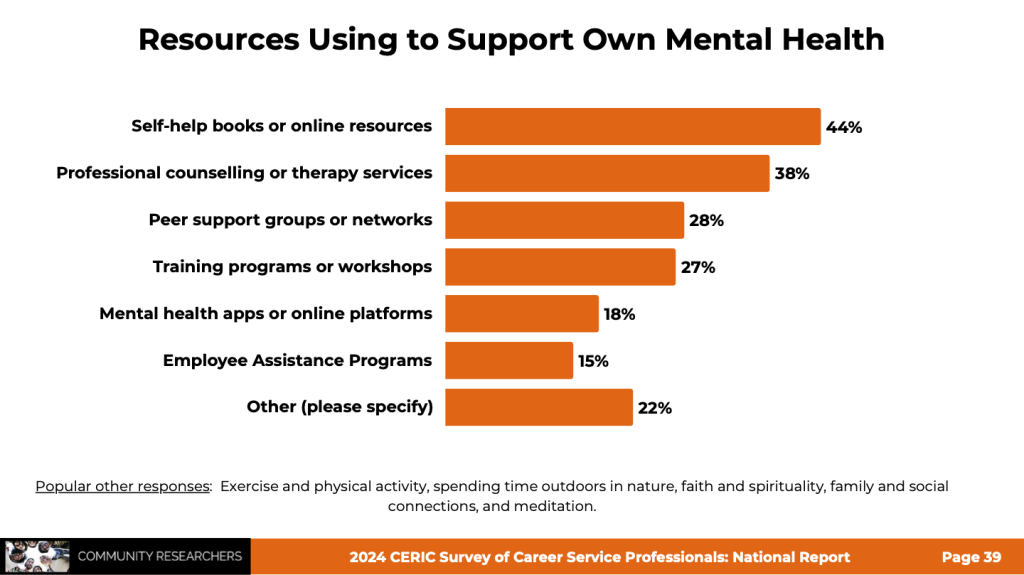
With no greater certainty on the road ahead, one B.C.-based respondent’s recommendation comes as no surprise: “Learning about change management would be good for CDPs.”
Cost-of-living crisis
At the grocery store, at the pump and in the career services office, the cost-of-living crisis is a pressing concern for many. The 2024 survey results reveal a striking shift in client concerns and priorities.
- 80% of career professionals say the cost of living is a key issue intersecting with their work (and 60% identify housing affordability as a top challenge)
- 47% say getting a job now to pay the bills is their clients’ and students’ main concern about navigating careers – up from 34% in 2019
- Regarding next steps in their careers, 56% report individuals are mostly concerned about their ability to find decent-paying work – up from 49% in 2019
Even as they support clients to navigate these challenges, some career professionals are also struggling with this reality.
“CSP [career services professionals] need to be paid more; we can barely afford rent,” commented one respondent working at a Quebec-based non-profit. An Ontario non-profit worker agreed: “[We] don’t get paid enough to do what we do.”
Insufficient wages are prompting some to consider a career change. Forty percent of respondents considering switching fields cited low salary/income as a reason (up from 34% in 2019). This also affects hiring, with salary budget identified as one of the top five challenges hiring managers face in bringing on new employees with appropriate skills – though well behind digital literacy and finding candidates with the appropriate skillset. Interestingly, compared with 2019, the latest survey results see fewer respondents making $55,000 or less and a higher proportion bringing in over $85,000.
Raising the profile of career development
Unfortunately, the growing need for career development supports has not necessarily been met with greater awareness. Over half (51%) of respondents report that, in their experience, the public is not aware of CDPs. Thirty percent say they have found the public is aware but has not worked with career professionals, while only 19% say the public is aware of and has worked with CDPs.
“I think there is still opportunity to increase the visibility of career development services to the public, policymakers, employers and funders,” said one non-profit professional from the Northwest Territories.
Another respondent expressed concern about people who are not trained in career development acting as career coaches. “I find these individuals to provide inaccurate guidance on resume and LinkedIn advice as well as networking advice and it’s frustrating as clients get confused as to who to believe,” the Ontario-based private sector CDP said.
However, some see reason for optimism. Asked how the public’s perception of the value of career service professionals has changed in the past few years, nearly one-third (29%) felt it had improved.
“I’m excited by where our field is going and how people in general are more interested in taking more control of their life/career,” said another private sector professional (ON).
In comparison:
- 40% of respondents said the public’s perception had not changed
- 25% were unsure
- 6% said it had worsened
As career professionals continue to collaborate and advocate for the importance of career development, our collective efforts have the potential to enhance public awareness, strengthen the profession and expand access to valuable services.
Resilient and evolving
The 2024 Survey of Career Service Professionals highlights key challenges and shifts in the field, from economic pressures and AI integration to mental health concerns and evolving client needs. Access to timely training and collaborative efforts to raise awareness of career development will continue to be critical for career professionals.
However, amid challenging times, career professionals are adapting and finding new ways to support jobseekers and students.
“I am excited about the future for our profession,” said one respondent.
At CERIC, we share that optimism and remain committed to supporting the growth and impact of career development in Canada.
Top image credit: Attendees at CERIC’s Cannexus conference immersed in conversation during a session. (Photo by Fred Cattroll)




